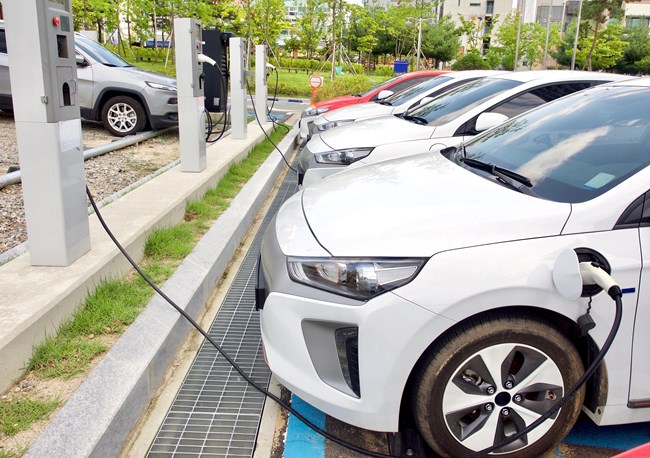
The start point for the best source of fleet information |
Fleets warned of EV charging reimbursement challenges
Date: 09 May 2022 | Author: Sean Keywood

Managing bills for charging EVs is currently far more difficult for company car fleets than traditional fuel reimbursement.
That was among the views expressed at the recent Fully Charged Live EV show, during a panel discussion entitled 'Is now the time for company cars to go electric?'
During the debate, National Grid fleet manager Lorna McAtear was asked how reimbursing EV drivers for charging compared to those with petrol or diesel vehicles.
She replied: "It's an absolute nightmare. As a company, you've got a mix of employees charging from home, so how do you separate the home charging from your normal electricity charging?
"There are ways of doing it but those companies that can do that are gradually building, so not all of the technology is available for every single charger, because the charger technology has been evolving as well.
"You have then got to bridge that with your workplace chargers, which can be easier because depending on how you do that you might just give everybody a card, and then you have got the public charging network, and then potentially the kerbside charging or destination chargers."
McAtear explained that fleets would be weighing up telling drivers to use phone apps, or issuing them with cards, or entering partnerships with companies that might then turn out to offer insufficient network coverage.
She added: "You are getting aggregators who are developing that technology, but it's all still new, so at the moment for a fleet manager it's a nightmare."
McAtear was however keen to emphasise the benefits of EV adoption for drivers.
She said: "We've noticed with a lot of drivers the wellbeing factor of it. [EVs] are less stressful [to drive]. So, when you are driving, especially stop-start or in traffic, actually the drivers are coming back saying they are enjoying the trip much more."
Another member of the panel, DriveElectric customer experience team leader Robyn Hester, emphasised the importance of driver engagement when fleets were switching to EVs.
She said: "One of the things we find when we speak to fleet managers is they are worried what their drivers are going to say. A really important part of transitioning that fleet is to engage with the drivers, because they are the end users, and no fleet manager is going to want a load of drivers telling them it doesn't work.
"If they are onboard and enthusiastic about it, then little hurdles and queries can be addressed to make sure it works for them."
As for government support for EVs, McAtear said that she felt ministers had done a good job with incentives, but that there were other issues in the sector that needed addressing.
She said: "I think the government has done an awful lot already to get to where we are. I think the challenge we have got today is more the supply chain issue, it's the inconsistency of the charging for those vehicles on the public network, it's the fact you can't easily get receipts when you are rapid charging out there, it's the HMRC being slower to respond to the fact all the electricity prices are going up. It's just making those little bits slightly more difficult for what was otherwise a relatively easy transition.
"We are no longer in a range anxiety, because all the vehicles out there can do it. We are more in a charge anxiety, because the other thing that's happening, is the uptake has been phenomenal. And so the charging infrastructure, as fast as it is moving, is playing catch-up with the amount of vehicles out there."










